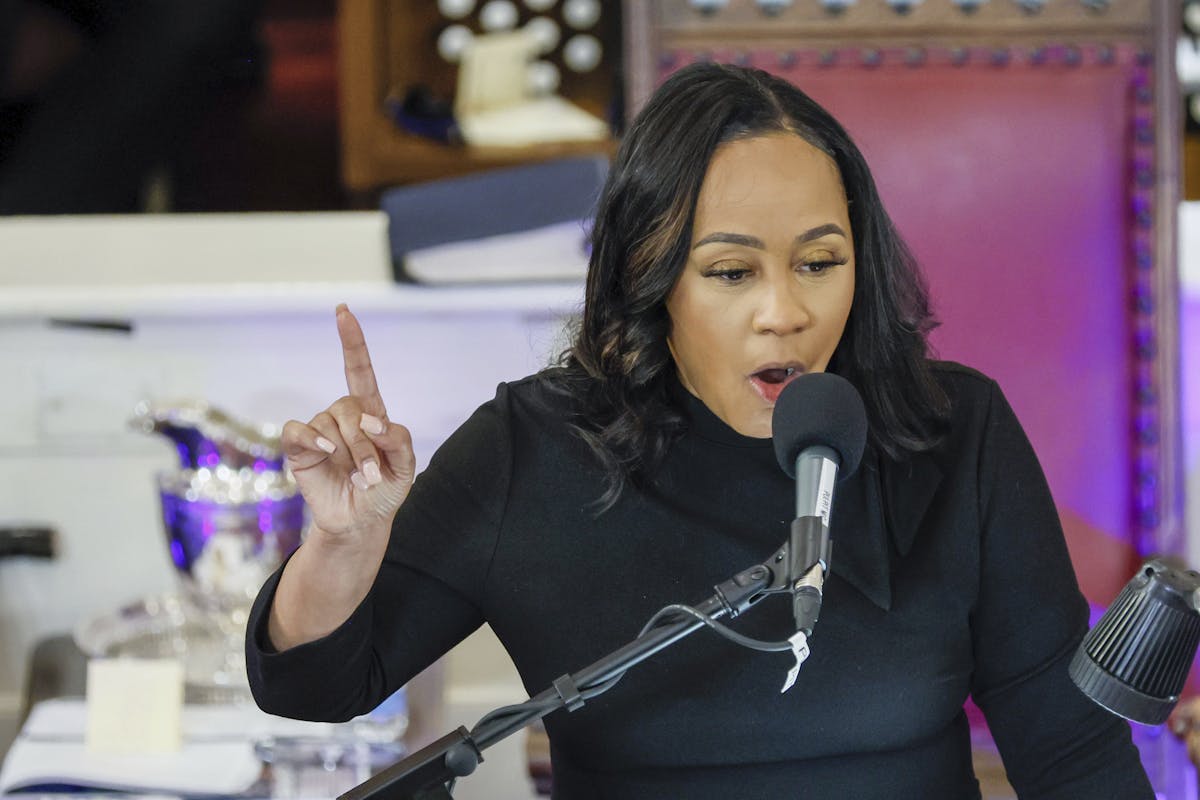Fani Willis on Trial
The district attorney of Fulton County learns that prosecutors who wield the power of the state have to play by the book.

“I’m not on trial,” the district attorney of Fulton County, Fani Willis, declares defiantly in court. “These people are on trial for stealing an election.” By “these people,” she means President Trump and the 18 other defendants she has charged as racketeers for allegedly trying to overturn the 2020 election. The lady doth protest too much, we think. For broadly speaking, Ms. Willis — and her whole camarilla at Fulton County — are on trial.
How has it come to pass, after all, that the district attorney trying a case finds herself not at counsel’s table but in the witness box, being reprimanded by a judge for testimony so combative that he threatens to strike it from the record? The role reversal’s roots were planted when Ms. Willis began an affair with the man she hired to be a special prosecutor in the case, Nathan Wade. Ms. Willis told no one — not the defendants, nor even her own colleagues.
Now, though, some of the defendants — all of whom, including Mr. Trump, face years in prison if convicted — want to know if the affair predated Mr. Wade’s appointment. They also want to know if the prosecution is tainted by a conflict of interest. Their theory goes something like this — Ms. Willis paid Mr. Wade, who used those funds on vacations taken by the two of them. To that Ms. Willis responds that she paid him back, off the books and in greenbacks.
We don’t yet know the outcome of the hearing, which began Thursday and has run over into today, when, as our A.R. Hoffman reports, Ms. Willis’ counsel held her back from taking the stand for a second day. They could feel like they have disposed of the pesky defendants. Or, they could have concluded that the more Ms. Willis speaks, the more she appears to be partial — which she is forbidden to be by the laws of Georgia.
There is another accusation against Ms. Willis, one leveled by Mr. Trump’s attorneys. They accuse her of “glaring, flagrant, and calculated effort to foment racial bias into this case” and of having “stoked racial animus.” They point to comments she made at Big Bethel AME Church where she accused her opponents of playing “the race card.” Her critics contend that this language — from an officer of the court — has already poisoned the jury pool.
The Constitution ordains the right to an “impartial jury,” just as those codes of Fulton County interdict even the appearance of partiality. It does not detract from the seriousness of what Mr. Trump and the others are accused of — working to steal a presidential election — to say that prosecutors who wield the power of the state should themselves withstand scrutiny. Before the trial of the 45th president begins, Ms. Willis first has her own to endure.

